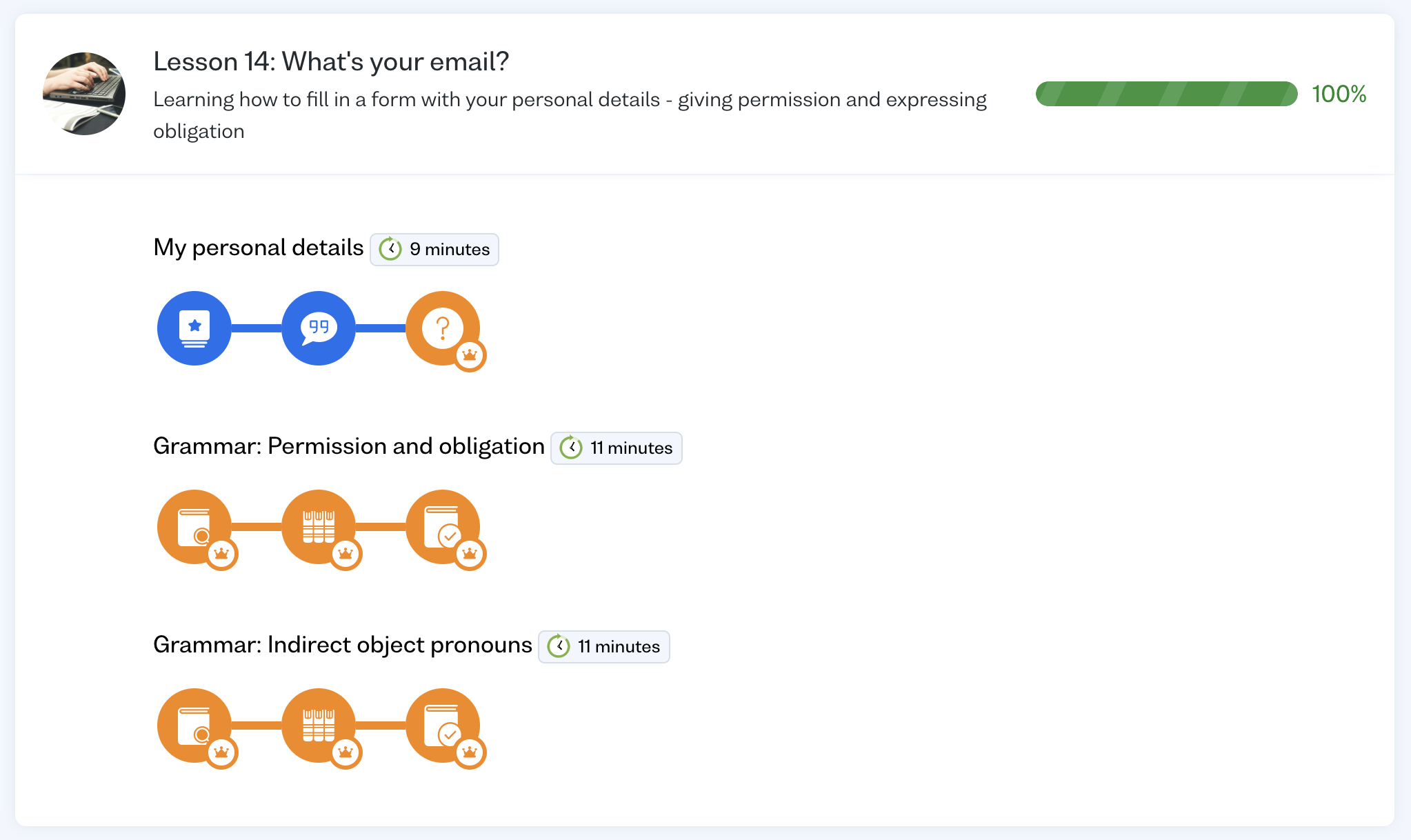Using Busuu to Learn Languages
Obligatory note: Busuu haven't paid me to write about them, and there are no affiliate links in this post. At the time of writing, Busuu offers Spanish, German, Japanese, English, French, Italian, Portuguese, Chinese, Polish, Turkish, Russian, and Arabic.
Hands up if you, like me, are a frustrated faux-polyglot with ambitions to do better?
I speak English natively, and I grew up speaking Swiss German, though this language is now long-dormant. At high school I studied Spanish and French each for three years, and between high school and university, I spent time in Costa Rica solidifying my skills. Last year I lived in Germany, where I learned a little more hochdeutsch, aided by my childhood memories of schweizerdeutsch. I've also taught a language—I got my graduate diploma in teaching English to speakers of other languages, and worked with international students at a New Zealand university. Right now, Spanish is my best non-native language, French is my worst, and German sits somewhere in between.
Really, though, I want to get my shit together and gain a lot more fluency in at least one of these languages. Like most good millennials, I've turned to apps to help with that. It makes sense for me: I move and travel frequently at the moment, and I work full-time, so enrolling in a language course is tricky.
There's a lot of criticism of language-learning apps, and a lot of posturing; "Learn X in Y minutes" is thrown about a lot. As a language learner and previous language teacher, I'm under no illusions. I don't expect apps to get me to fluency in a language. I think they absolutely have their place, though, and my app of choice is Busuu.
Duolingo is the most well-known language training app out there, and I struggled through it for a long time. Its frequently nonsensical sentences introduced me to new vocabulary, but I found the lack of contextual explanation frustrating. A lightbulb moment for me was when I discovered that Duolingo's web app contained a lot more explanation than its iOS app, and allowed me to test out of easier levels, but I was seriously annoyed at the lack of parity. I found Duolingo's exercises boring, and I dreaded them.
Busuu takes a different approach. I find it much more similar to being in a language class in high school (which I loved). A new concept is introduced—new vocabulary in isolation, and then in a sentence. You are quizzed and asked to perform various exercises: fill in the gaps, answer the question correctly, conjugate a verb. Questions are initially asked in your primary language, but eventually they are switched to your target language.
Grammar structures are introduced regularly, in conjunction with a theme to guide your learning—office conversations, talking about what you did during the weekend, talking about travel plans, and so on. There are high-quality recordings of conversations between native speakers that are lengthy enough to be genuinely interesting and, importantly, relevant to everyday life. As you move up in difficulty, you'll even get videos and (simplified) newspaper articles.
A slightly newer feature is Busuu's vocabulary drilling, where spaced repetition is used to strengthen vocabulary you might have forgotten. I was really pleased when they introduced this feature, because previously Duolingo had them beat on that.
Right now, I'm revising Spanish for an upcoming trip to Mexico. I study for 30 minutes every day, usually during my lunch break. I'll usually begin by drilling some vocabulary, then moving on to my next topic. A full lesson usually comprises new vocabulary, listening to dialogue and filling in the gaps. After that, a short quiz, and then usually a grammar topic is introduced. Finally, I'll complete a freeform written exercise, or record myself speaking.

One of Busuu's features that I didn't expect to enjoy so much is the assessment of those written and spoken tasks. My work will be sent out to native speakers of my target language, who will correct it and give me feedback. In turn, I correct one or two exercises for people who are learning English. I'm under no obligation to do this, but I find it fun, and it only takes a moment or two. There's a real sense of reciprocity, and I think it's one of the huge advantages of Busuu. When completing Duolingo's speaking tasks (over a piece of crap phone microphone, with a computer assessing my accuracy) I was never sure if my pronunciation was bang on or way off. With Busuu, native speakers will point out where I'm going wrong and help me get better.

Busuu is much more challenging than Duolingo, which is perfect for me. It frequently introduces phrases that are too hard for my current level, but which expose me to more of the language. For example, in a listening exercise, I might not understand part of a sentence, but I can figure out the gist of it through context. This approach aligns with everything I know about best practise in language learning and teaching, and it keeps things interesting for me.
Part of the reason I would dread my daily Duolingo study is that I found it so boring and repetitive. It didn't allow me to jump around too much if I just wasn't in the mood for a specific lesson (Busuu does!), and the mindless repetition felt like a poor use of my time.
Aside from the language learning aspects, I've been really happy with the quality of the Busuu app, both the iOS app and the web app. I don't see any parity gaps—I can study equally using my phone or the web app, depending on what's best for me in the moment. I'm particularly impressed with the thoughtful UX on the iOS app. It's really quite slick, and works well on my very small iPhone SE. The product development team there has really put a lot of thought into how to make best use of the small screen space, and I think they should be proud of what they've made.
I paid for Busuu's "Premium Plus" membership, which was on sale for €39.99 for 12 months. An extremely reasonable price which I am very happy to pay, and which I'll no doubt renew.
